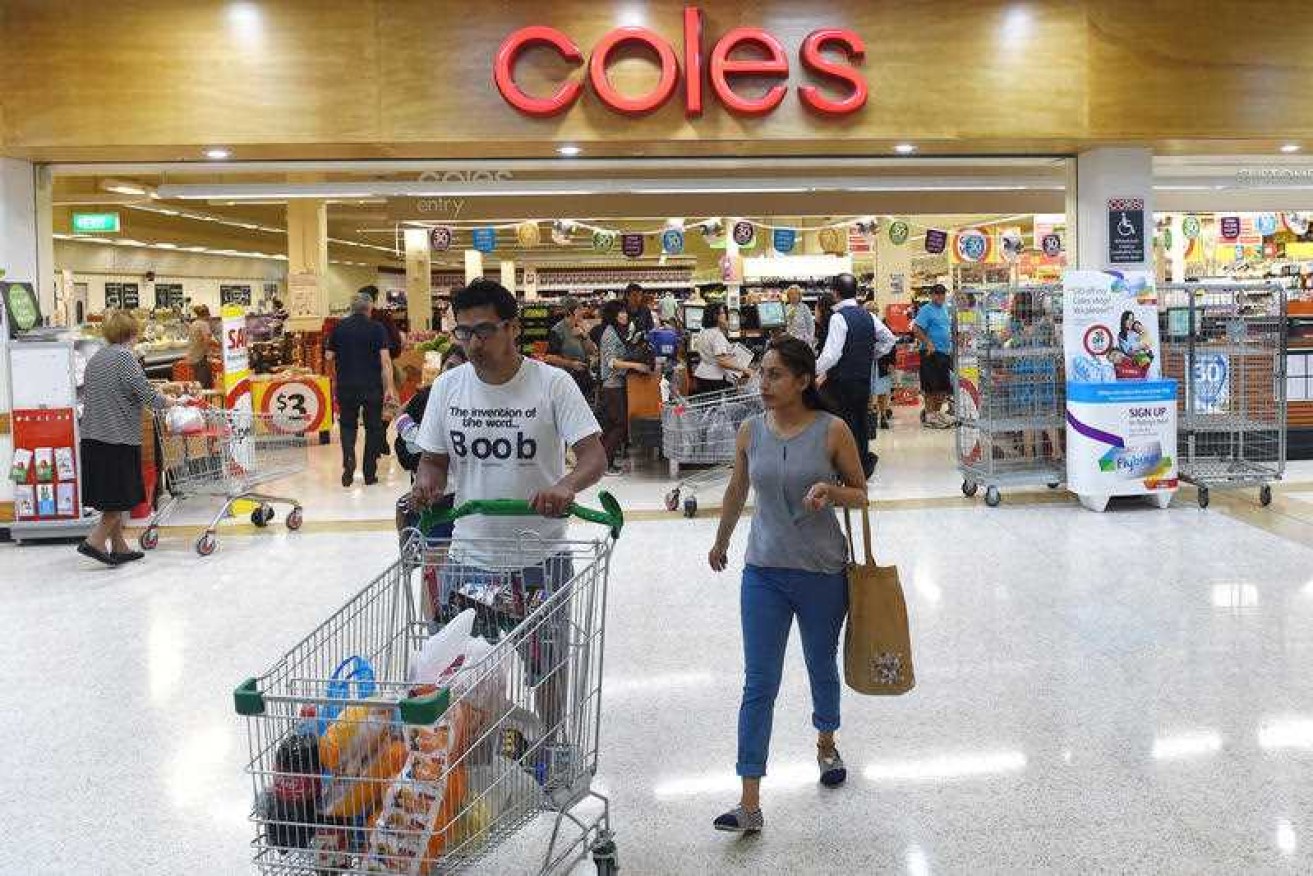Rising cost of living leads to belt-tightening at the supermarket


Shoppers are trading off buying healthy food as they balance higher costs with record slow wages growth. Photo: AAP
Soaring living costs and low wage growth are forcing shoppers to opt for cheaper packaged and processed foods over fresh produce, in a move one supermarket boss has branded “disastrous”.
Coles supermarket boss John Durkan has revealed that rising power prices in particular are hampering consumer spending, with fresh food one area where people are tightening their belts.
“At a time when incomes are not growing much, many households are having to confront large price rises in other areas of everyday living,” the Coles managing director said in a speech at the American Chamber of Commerce on Thursday.
“We are seeing people really being affected by utility prices across the board.
“They are having to choose not only what they are going to feed their family but how much of it, which is disastrous as far as I am concerned.”
Mr Durkan said Coles customers, particularly in lower socio-economic areas, are shifting from buying premium products to “mid-tier” ranges and increasingly from the supermarket giant’s own range of private-label products.
Simultaneously, they are spending less on fresh produce and fresh meat, he said.
“Undoubtedly this is happening,” Mr Durkan told reporters.
“In essence, these households are being forced to trade off healthier options for their families.”
Spending on groceries and food items was one of the most common sources of expenditure reduction, according to consumer surveys, despite relatively low food and grocery price inflation over the period, Mr Durkan said.
Research commissioned by Coles on cost-of-living trends in Australia shows consumers are paying higher prices for utilities, childcare, health and education, which in turn is contributing to more modest spending.
The report, which draws data between 2011 and 2015 from the Australian Bureau of Statistics, the National Centre for Social and Economic Modelling and consumer surveys, notes the cost increases had a greater impact on lower-income families than wealthier households.

People are increasingly buying “mid-tier” or supermarket-branded products. Photo: Getty
Mr Durkan also said that while many Australian suppliers support lower prices, some multinational companies, such as Heinz and Coca-Cola, are charging Australians more for their products than in overseas grocery markets.
“This is frustrating to me because often the price differences relate to the same product made and sourced from the same place,” he said.
“Why should Australian customers pay more for products like baked beans, cola, coffee and razor blades, chocolate bars, than customers overseas? … We have to fix that,” he said.
According to Mr Durkan’s speech, Coles has delivered “25 consecutive quarters of food and liquor price deflation in our stores and we are proud of that consistent effort”.
An extra $200 million was recently dedicated to lowering prices of products on Coles shelves.
Coles and rival Woolworths are both pushing to increase their private label product ranges as part of their strategy to cut prices and save margins.
Woolworths this week announced it was pulling all but two of the group’s Mount Franklin water products from shelves to make more room for its own private-label product.
Mr Durkan said Coles will continue to invest in lowering prices but insisted the move would not depress the supermarket giant’s earnings, instead helping to ensure longer term growth.
– with AAP








